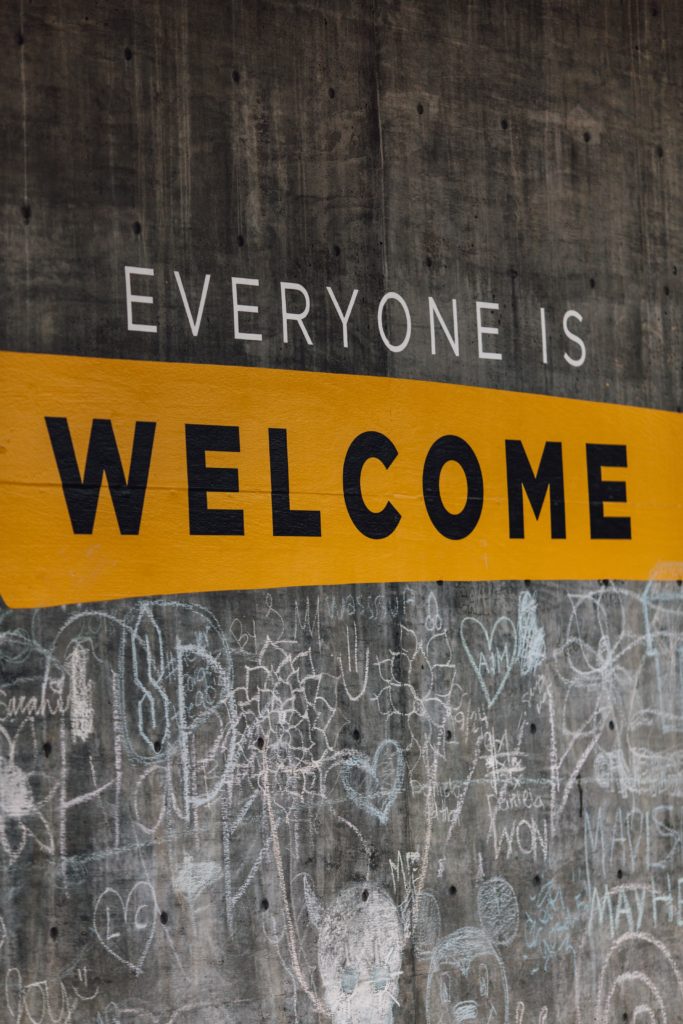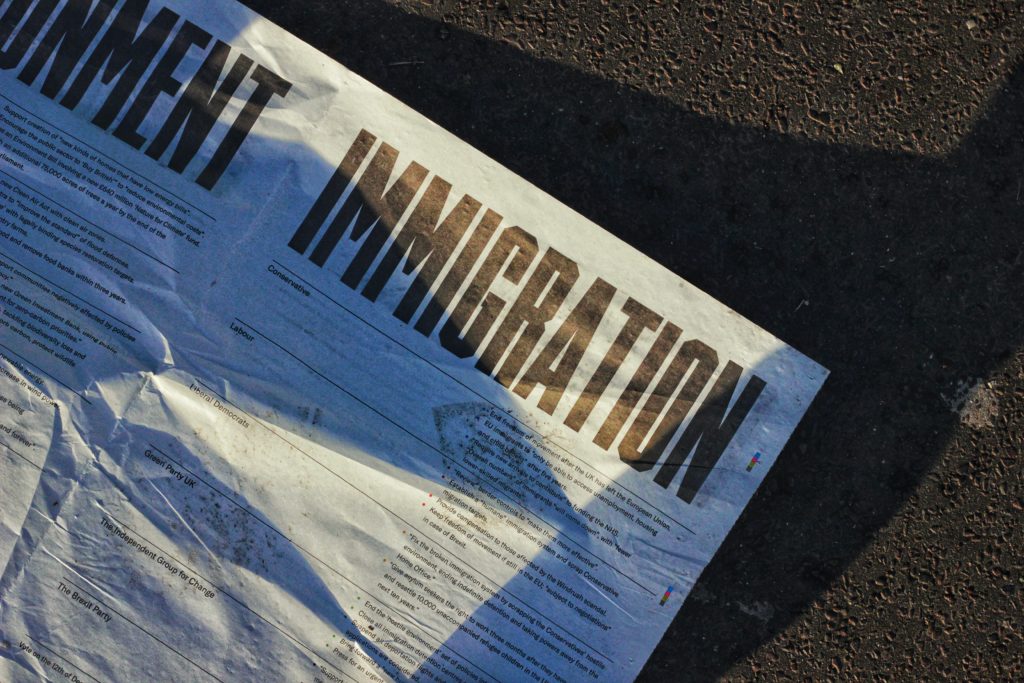By now, you will most likely have heard of the UK’s Nationality and Borders Bill, currently making its way through the House of Lords and once more making headlines.
Perhaps you’re wondering what exactly it is, what implications it holds for human rights, and why there has been fierce opposition to much of its contents. In this article, we’ll cover these points and clarify some of the sometimes-complex discussions around this.
by Anita Bhadani
What is the Nationality and Borders Bill?
The Nationality and Borders Bill is a proposed piece of legislation currently making its way through the UK Parliament. It contains a range of measures targeted at making substantial and controversial reforms to the UK’s immigration, asylum and citizenship systems. It has been dubbed as the ‘anti-refugee bill’ by the Refugee Council, among other organisations, due to the nature of the proposed reforms contained within the bill.
What will the bill do if passed, and why has it drawn widespread criticism?
There is a huge range of proposed reforms within the bill, which have drawn fierce criticism from civil society.
Just some of these many proposals (and their consequences) include:
The deprivation of citizenship without notice
Clause 9 of the bill, “Notice of decision to deprive a person of citizenship,” exempts the Government from having to give notice if it is not “reasonably practicable” to do so, or “in the interests of national security, diplomatic relations or is otherwise in the public interest.” While the UK government have stripped people of citizenship already, this new clause would put the citizenship of millions of people – millions – at unprecedented risk. Not giving people notice impairs their ability to contest or appeal the decision, and analysis has shown that people from ethnic minority backgrounds face disproportionate risk. This could also risk placing people into ‘statelessness’ – illegal under international law.

Expansion of the immigration detention estate
Bail for Immigration Detainees (BID) speaks of how the bill would complicate the process for those applying for bail from immigration detention – which they state will ” make it harder for people to get bail and will leave them stuck in detention for longer.” The UK is already currently alone in Europe in enforcing indefinite immigration detention (detention without a time limit). Meanwhile, Clause 28 of the Bill seeks to allow people seeking asylum to be ‘removed’ from the UK and sent overseas to a third country for their asylum claim to be processed – something that essentially paves the way for Australia style offshore immigration detention centres.
Requiring refugees to seek refuge in the ‘first safe country’ arrived in
The UNHCR has stated that “requiring refugees to claim asylum in the first safe country they reach would undermine the global, humanitarian, and cooperative principles on which the refugee system is founded”. They continue to point out that this is unworkable in practice – currently, 73% of refugees are currently hosted in countries neighbouring their countries of origin – assigning an even higher level of responsibility to these countries would threaten the capacity and willingness of these countries to “provide protection and long term solutions.” Additionally, the majority of countries that refugees pass by on their way to the UK host significantly more refugees and asylum per population in comparison to the UK.
Criminalisation of those seeking refuge
Many have highlighted that this bill will create a ‘two-tier’ system, through differentiating between refugees on the basis of how they arrived in the UK. Essentially, the bill aims to penalise those who arrive in the UK through pathways deemed not “safe and legal”. However, this fails to acknowledge that much fleeing persecution (including, in certain cases from their own governments) are unable to travel by ordinarily lawful routes – as Amnesty International have pointed out, “To travel by ordinary lawful routes, these people are required to obtain visas. And there are no visas available for those who are seeking asylum”.
Furthermore, this undermines Article 31 of the UN Refugee Convention which sets out that refugees cannot be penalised for entering the country illegally to claim asylum if they are “coming directly from a territory where their life or freedom was threatened” (provided they “present themselves without delay to the authorities and show good cause for their illegal entry or presence”). Indeed, as the Refugee Council states, “Under international law, anyone has the right to apply for asylum in any country that has signed the 1951 Convention and to remain there until the authorities have assessed their claim.” The bill thus seeks to undermine the rights afforded under international law to people seeking refuge and asylum.

Lack of opening safe routes
While the UK government state that the bill will “establish and strengthen safe routes to asylum”, many human rights organisations have disagreed. Amnesty International UK and Migrant Voice stated that “there is nothing in this bill to achieve this objective (of establishing and strengthening safe routes to asylum)”, adding that in fact there are, “provisions in this bill to achieve the opposite; and these far outweigh the very little the Government has done or has proposed to meet the objective of establishing, still less strengthening safe routes to asylum.”
What stage is it at currently?
When legislation is being created in the UK, it must go through a certain set of stages before it is passed as an Act of Parliament – i.e. into law. The bill most recently entered the ‘report stage’ in the House of Lords (HOL), where a detailed examination of the Bill continues. Any member of the Lords can take part and vote on any amendments that may take place.
The House of Lords voted to make a number of changes to various aspects of the bill, rejecting many of its particularly cruel aspects. ‘Report stage’ at the House of Lords is currently still ongoing, after which the bill (with amendments) will be returned to the House of Commons for further consideration.
If the House of Commons and the House of Lords have fundamental disagreements around certain aspects of a bill, the bill can be ‘ping ponged’ back and forth between the houses until a compromise or agreement is reached.
In rare circumstances, if the two houses cannot reach an agreement, the bill will fail. However, in exceptional cases, if certain conditions are met the House of Commons can utilise the Parliament Act to pass the bill against the will of the House of Lords.

What would the bill mean for Scotland?
Immigration is a reserved matter, which means that legislation here is decided upon by Westminster. Recently, members of the Scottish Parliament refused consent for the Bill – however, as the bill concerns the reserved power of immigration, this severely curtails the ability of devolved administrations to impede the passage of the bill.
How can we make our voices heard, and speak out in opposition to this bill?
There have been protests around the Bill across the UK, where people have raised their voices and stood in opposition to the bill. You can write to your MSP or MP to ask them what they are doing about this bill, and to highlight your views around this. Scottish Refugee Council has produced a handy template to allow you to contact your elected representatives with ease, as have Global Citizen. Elected representatives are more likely to take their constituents’ will into account when considering legislation, so it is particularly important for us to make clear our views.


